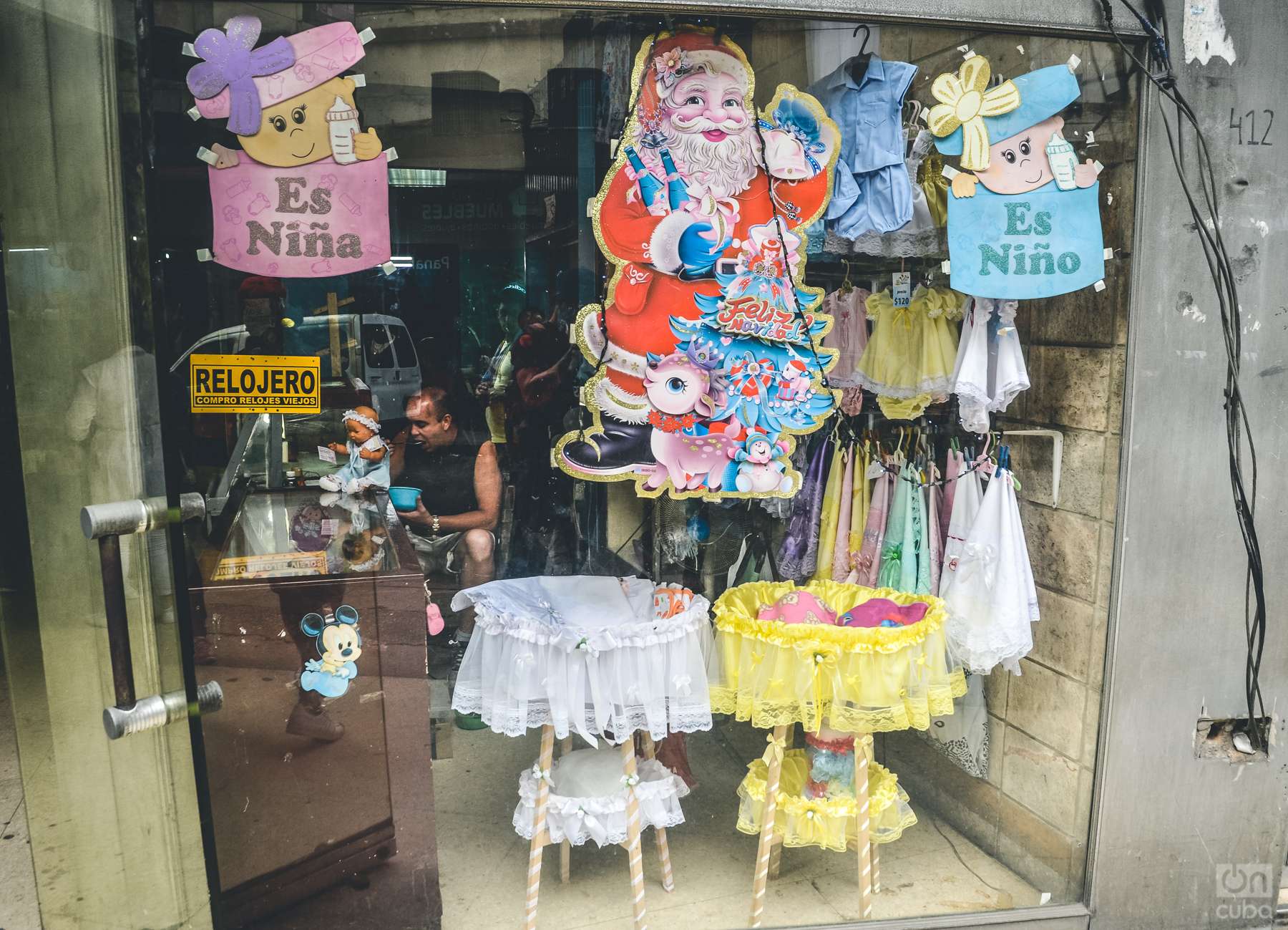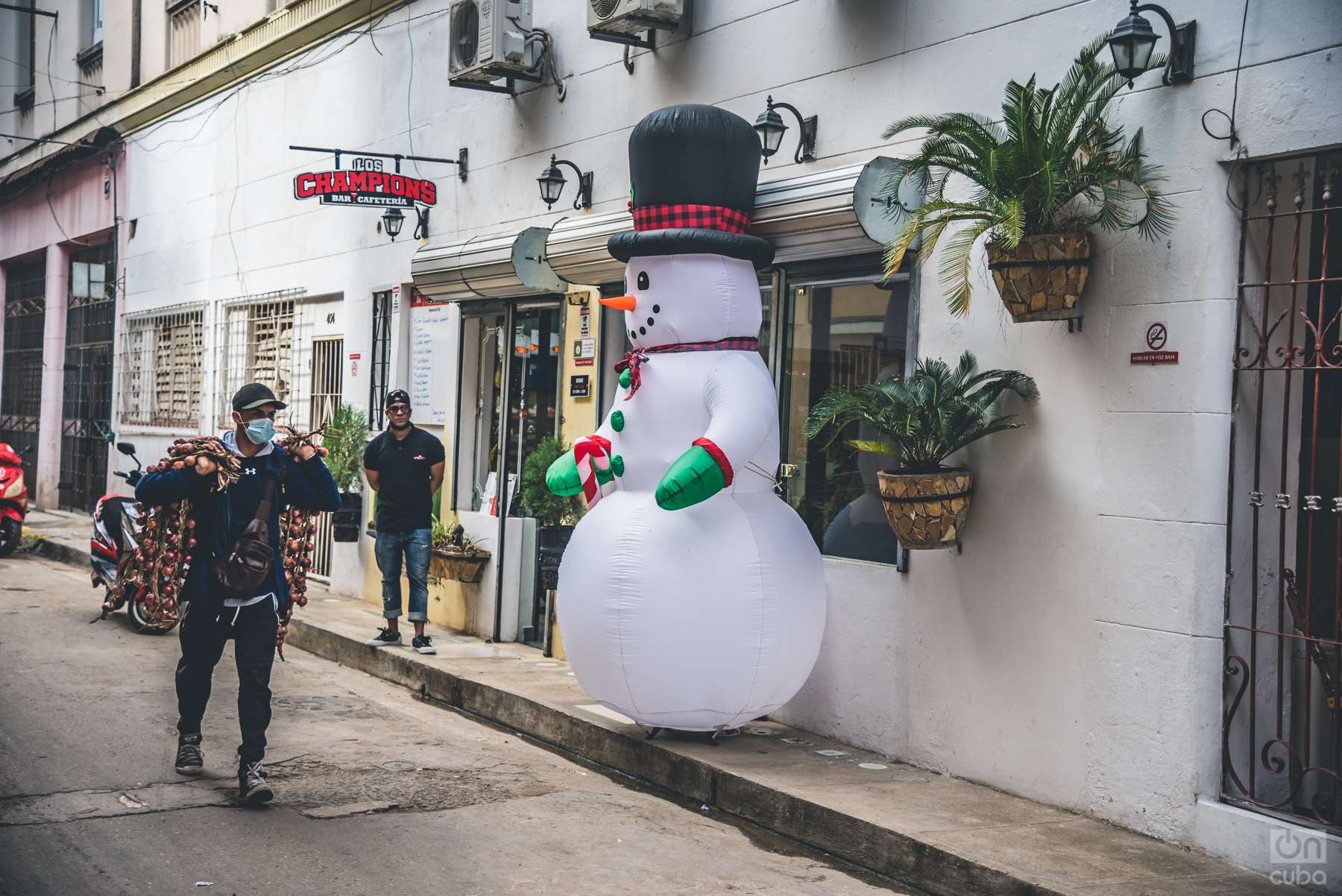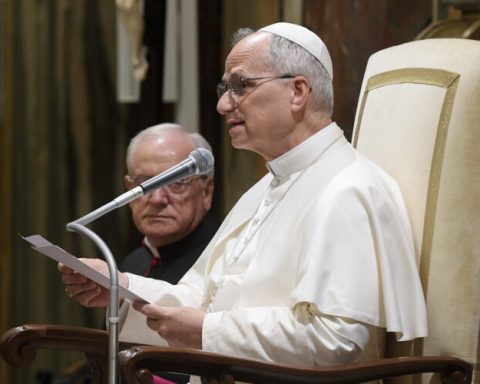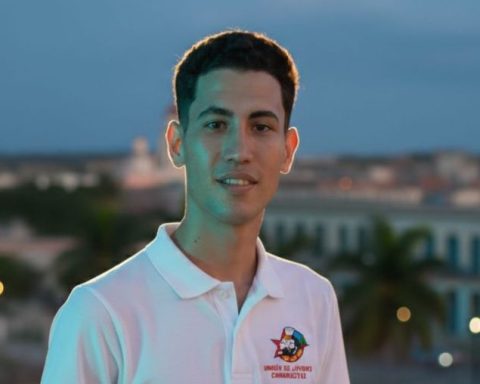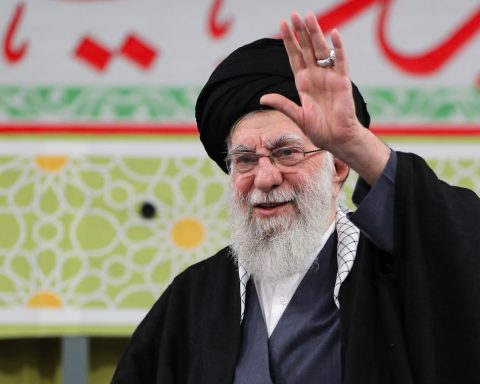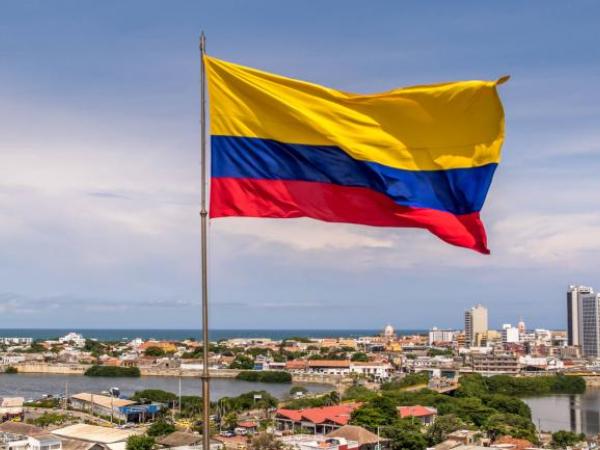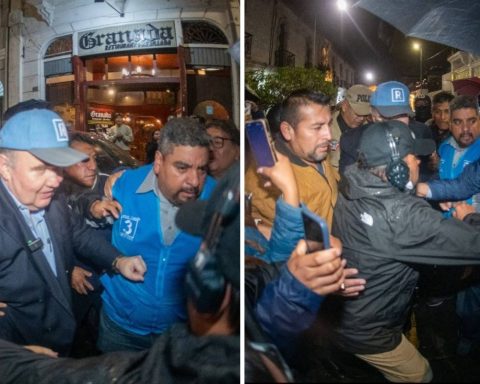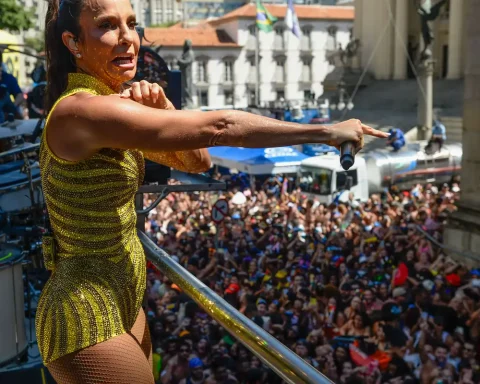The Christmas festivities are felt all over the world, and Cuba, with the particularities of its context, is not left out. Our “winter” may seem, to other inhabitants of the northern hemisphere, just like a less hot summer.
These days the postcards of everyday Cuba are filled with scenes of red hats, papanoels on sleds and bundled up accordingly, inflatable snowmen and plastic trees of various sizes, with garlands, glass bulbs and colored lights.
Christmas on the island is much more a matter of festivity than a religious celebration. Christmas Eve, in addition to gathering the family for dinner, can become a party between rums, dance and music; a kind of prelude to the end-of-year festivities.
Our little tree is not a royal palm, but a pine; nor do we imaginarily “plant” it in the sand, although we have plenty of beaches. Near its “trunk”, in the lower part, the manger that represents the birth of the baby Jesus is usually the protagonist, and at its tip shines, very high and golden, the star of Bethlehem.
Caribbean “Paganism”
A certain pagan spirit links Cuban Christmas with the origins of the festivity, which date back to before the 3rd century.
The background is found in the Roman Saturnalia, a festival dedicated to the god Saturn, of agriculture and the harvest. They were massive and uncontrolled parties, with public banquets, music and the exchange of gifts. They would last for weeks between the end of November and all of December.
To try to convert the Romans to Christianity, the church appropriated the celebration. To do this, he made the birth of the baby Jesus coincide with the winter solstice.
“The choice of December 25 as the date of Jesus’ birth has nothing to do with the Bible, but rather was a quite conscious and explicit choice to use the winter solstice to symbolize Christ’s role as the light of the world,” explained to BBC World Diarmaid MacCulloch, Professor of Church History at Oxford University.
“The festival customs and misrule of the Saturnalia at the same time of year naturally migrated into Christian practice, as by the fourth century Christianity was becoming more prominent in Roman society. They were going to be more accepting of the new beliefs if they didn’t clash with their old non-Christian customs,” he added.
Finally, in the year 320 Pope Julius I established Christmas on December 25.
Variations and syncretism
The State may be secular, but ours is undoubtedly a spiritualized society, in whose religious framework more than six important religious expressions coexist, with their variations and syncretizations.
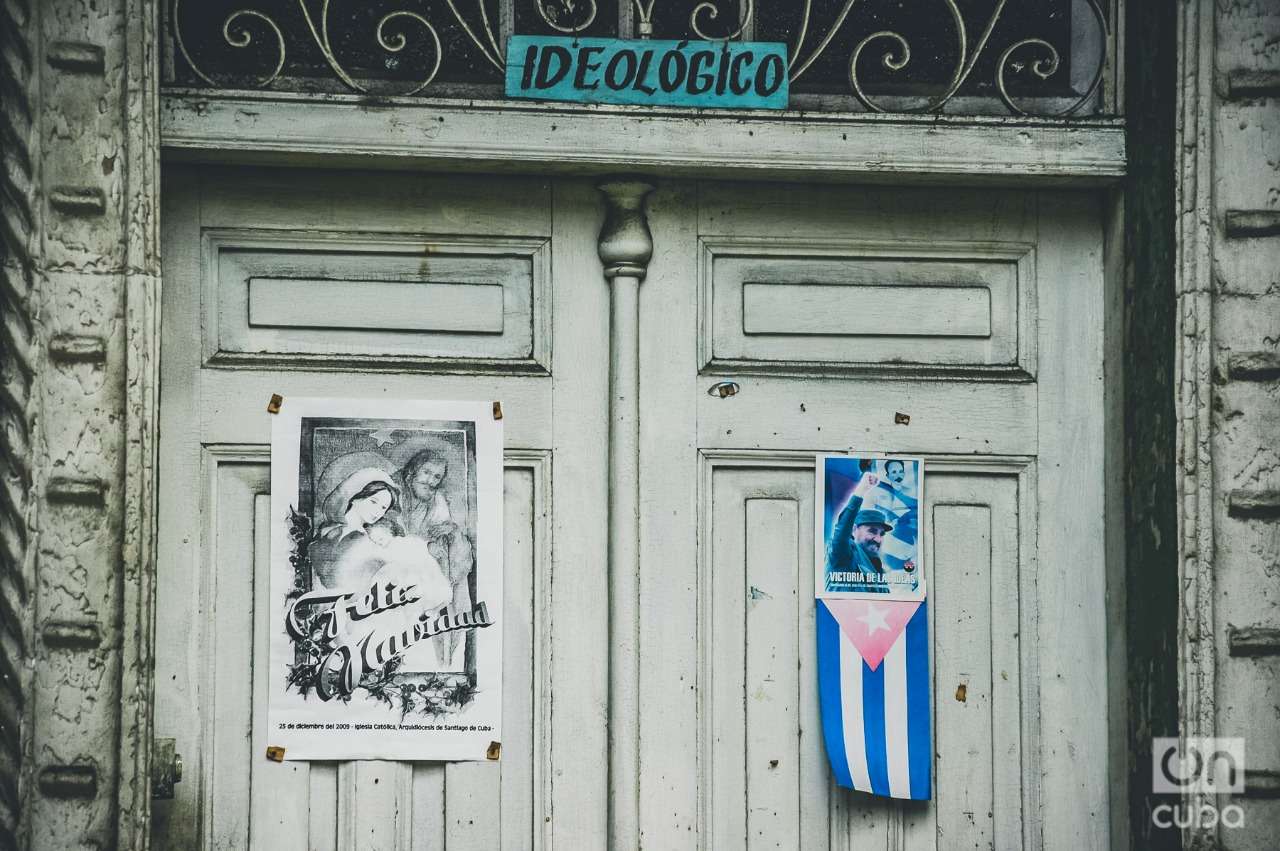
Many, even if they are not practitioners of any of them, are culturally nurtured and transit between two or more of these expressions, as part of the spiritual vein that also characterizes us and composes the expression of our identity.

Thus, and moved by the festivities that are celebrated throughout Cuba this end of the year, whether they are called Christmas or not, and by the diversity that characterizes us as a society, we talked with some people who explained to us what Christmas is for them, how they see and how they live this time of year.
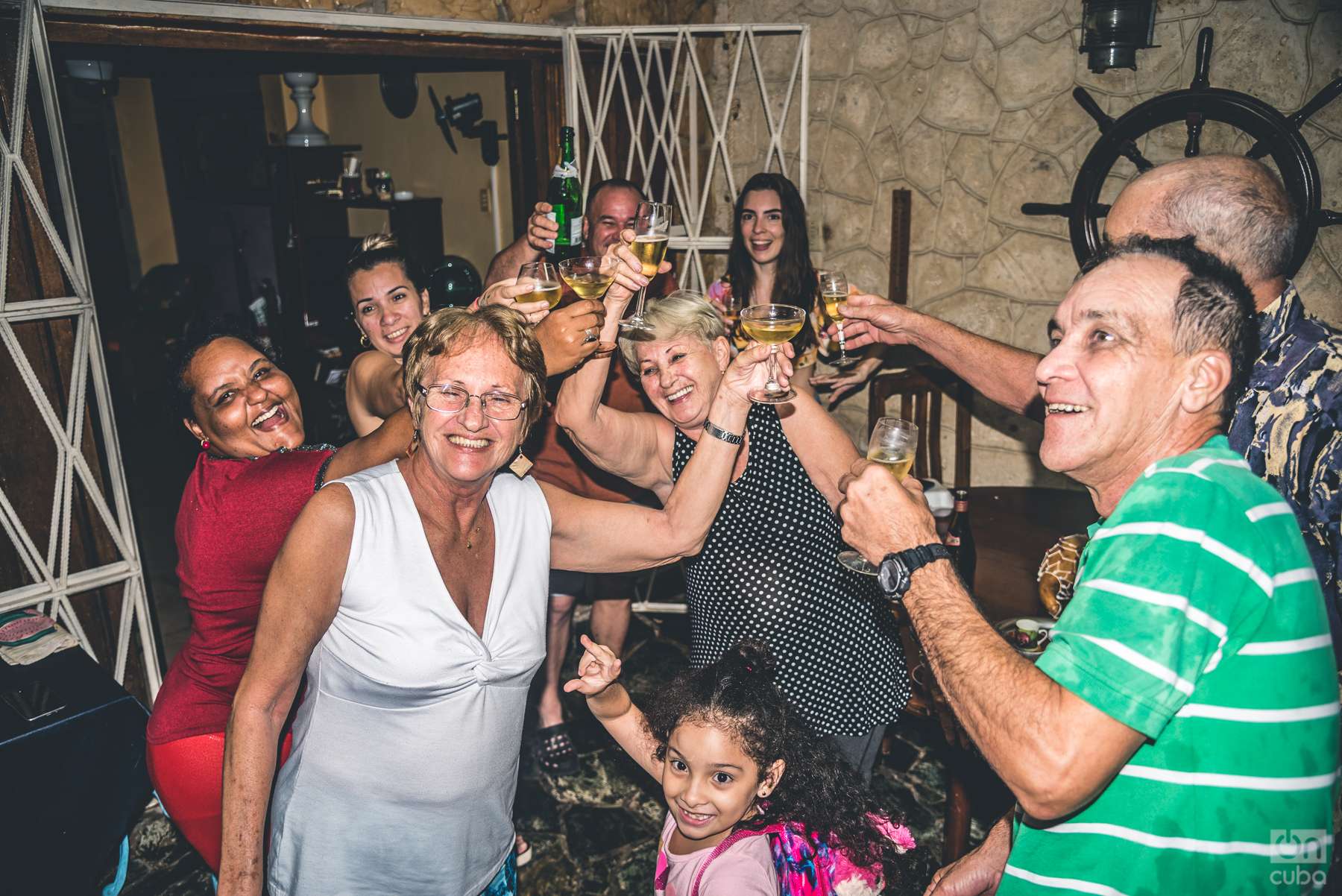
Mariam García, 32 years old, Muslim
Muslims do not celebrate Christmas or the end of the year, nor do we celebrate any other designated date such as Love Day, Mother’s or Father’s Day, etc. Islam or, rather, the followers of this religion are governed by the Koran —our sacred book that Allah (God in Arabic) revealed to our beloved prophet Mohamed (peace be upon him) through the angel Gabriel— and by the Sunnah (acts, tradition of the prophet Mohamed, collected in a collection of sayings, teachings and approvals of the prophet Mohamed and some of his companions). Neither of these two sources mentions the approval of this type of celebration, whether Christmas or not. Muslims only celebrate two important dates in the year, called Eid, which are Eid al Fitr (Feast of the End of Fasting) and Eid al Adha (Feast of Sacrifice), apart from other activities (weddings, Fridays, meetings or family visits, etc.). Islam is a monotheistic religion; Muslims believe in one God, in which Christianity and Judaism also believe, although in these religions there are certain differences of concept.
For us Muslims, Christmas festivities are pagan celebrations and have nothing to do with our belief in the birth of Jesus (peace be upon him), an important prophet in Islam in whom we believe, but not as a son. of God, but as his messenger. Although part of our principles is not to celebrate or congratulate others for other religious celebrations, we must respect these acts, because Islam also teaches us to be kind to people who practice other faiths, help them, give them good advice, socialize.
In my case, when my family celebrates these Christmas festivities, even though I don’t share the same meaning with them, I respect them, just as they respect me, and sometimes I stay with them at the family dinner and we take the opportunity to get together and share in family. We do it and we are together as if it were any other day of the year, with the intention of socializing, helping each other and taking advantage of family moments.
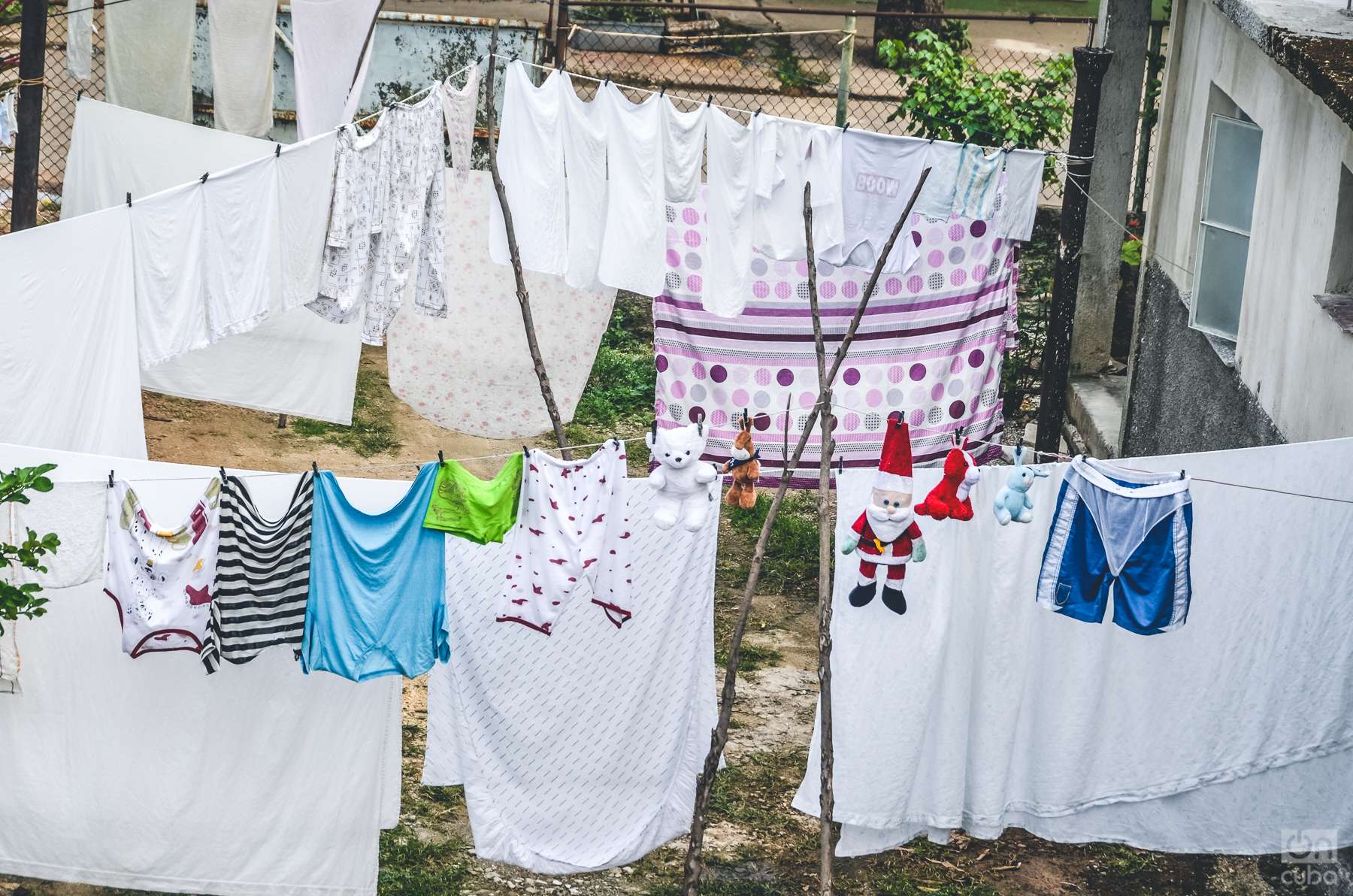
Daylén Rodríguez, 36 years old, atheist
Although I am an atheist, since I was little I adopted my family’s Christmas rituals and today I maintain them. That’s why in my house we always celebrate Christmas Eve. We also used to go to the Misa del Gallo in a group (when it was more organized) and also to the Cathedral of Havana to see the Birth of Jesus. We stopped going to the Misa del Gallo when the pandemic began COVID-19; We haven’t done it again since, but that was an annual ritual for our family, without fail. When Christmas approaches we also put up the tree and decorate the house with little lights. The Nativity is something that is never missing in the decoration of the tree in my grandmother’s house.
On the 31st we also usually eat the twelve grapes, but this year I think there won’t be any. (Laughter).
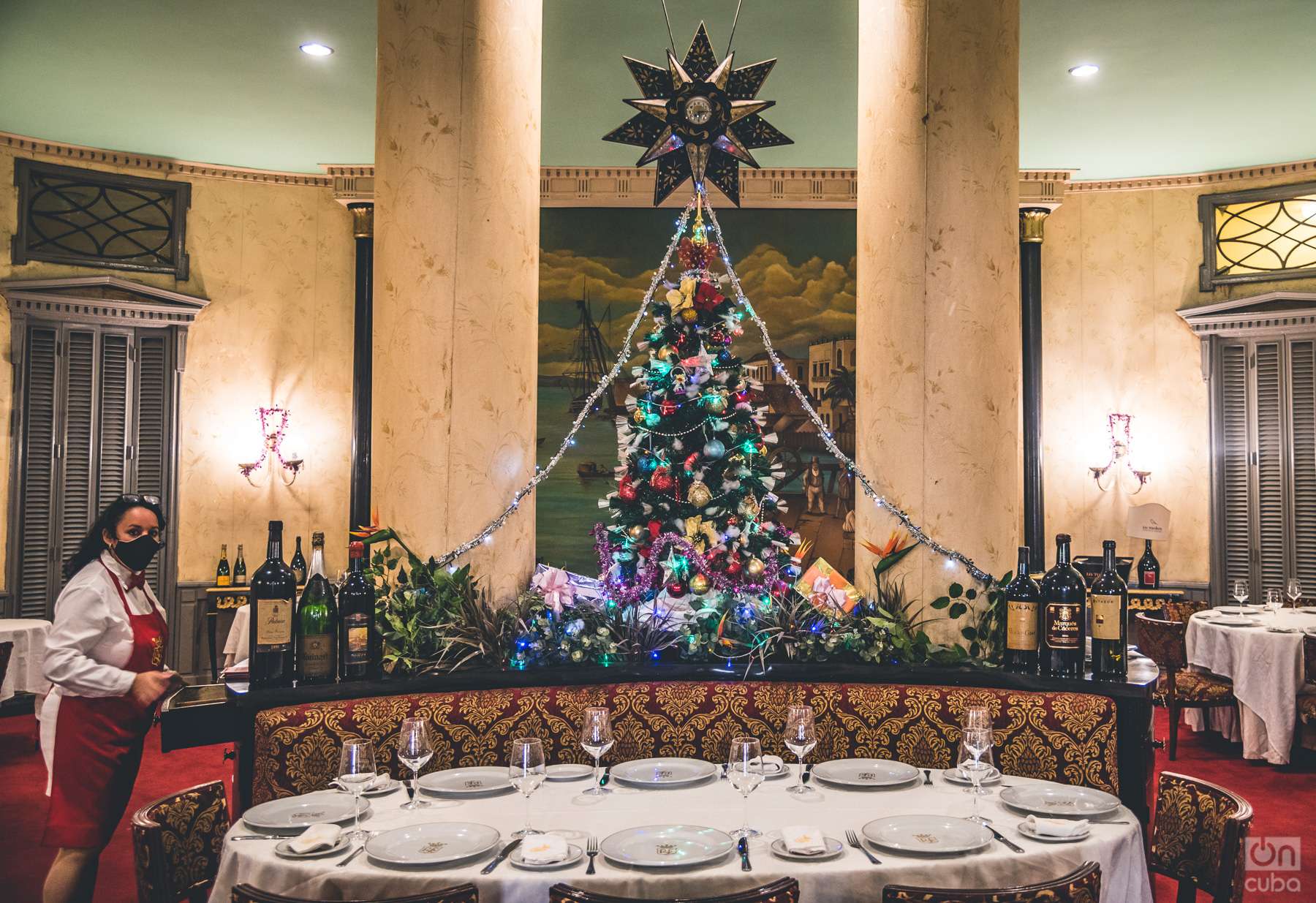
Dayron Soto Cebrián (Awo Orumila Iwory Rote), 36 years old, babalawo
The Yoruba religion does not have any specific ritual to celebrate Christmas. Some people who practice feed the earth to close the year and give thanks for the prosperity and because they have not had family losses. Some religious give drums to their saints for fulfillment or in gratitude for the year that is ending. We babalawos met on December 31 at the Yoruba Association of Cuba and in a secret ritual we determined the Letter of the Year.
On December 4 is celebrated and surrendered moforibale to the osha Shangó, who is the king of fire, thunder, drums, women and the Yoruba religion and the 17th is the day of San Lázaro, who is the saint who has to do with skin diseases, venereal, in short, all diseases, it is very miraculous. There are several rituals that we perform on these dates, many of them secret. Also, as babalawos, we clean our godchildren so that they start the year with good vibes.
Although my religion does not have any ritual for Christmas, in my case, for example, I share that day with relatives. Sometimes our religious house of babalawos meets, we share and celebrate Christmas Eve, but not in the same way that Christians do. When the date coincides with an Ifá consecration or that of a saint, we celebrate it there, in our religious house.
